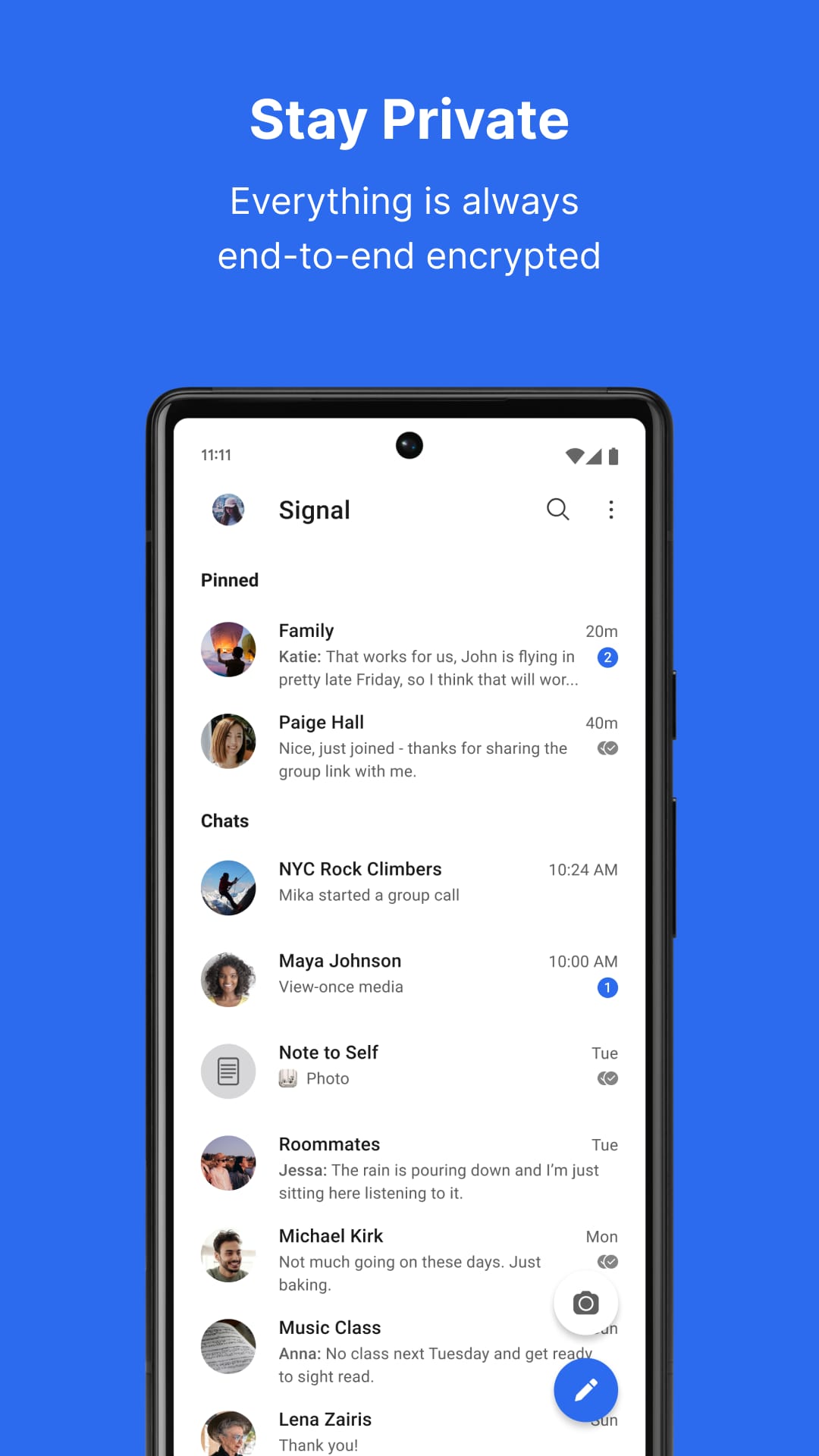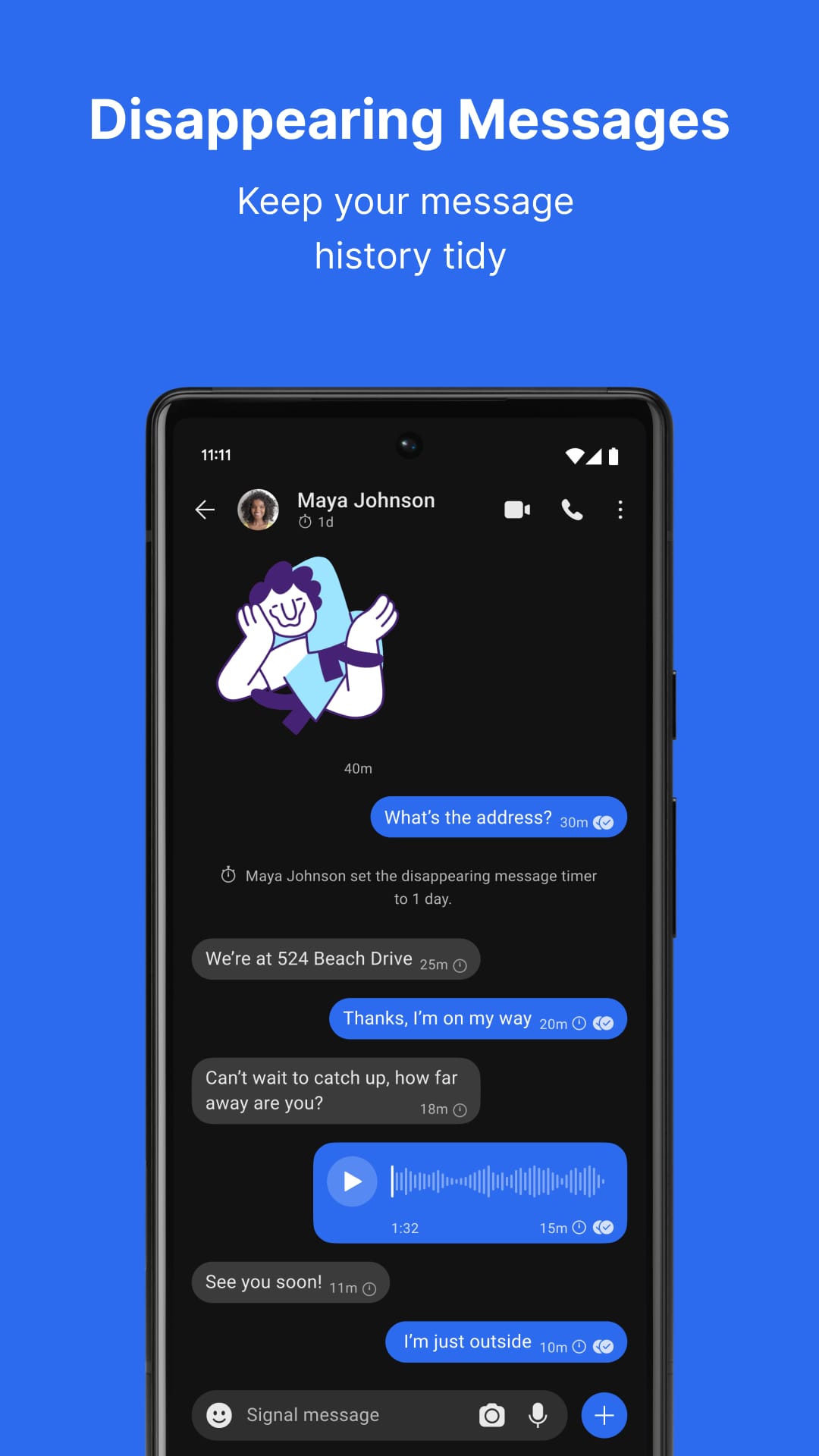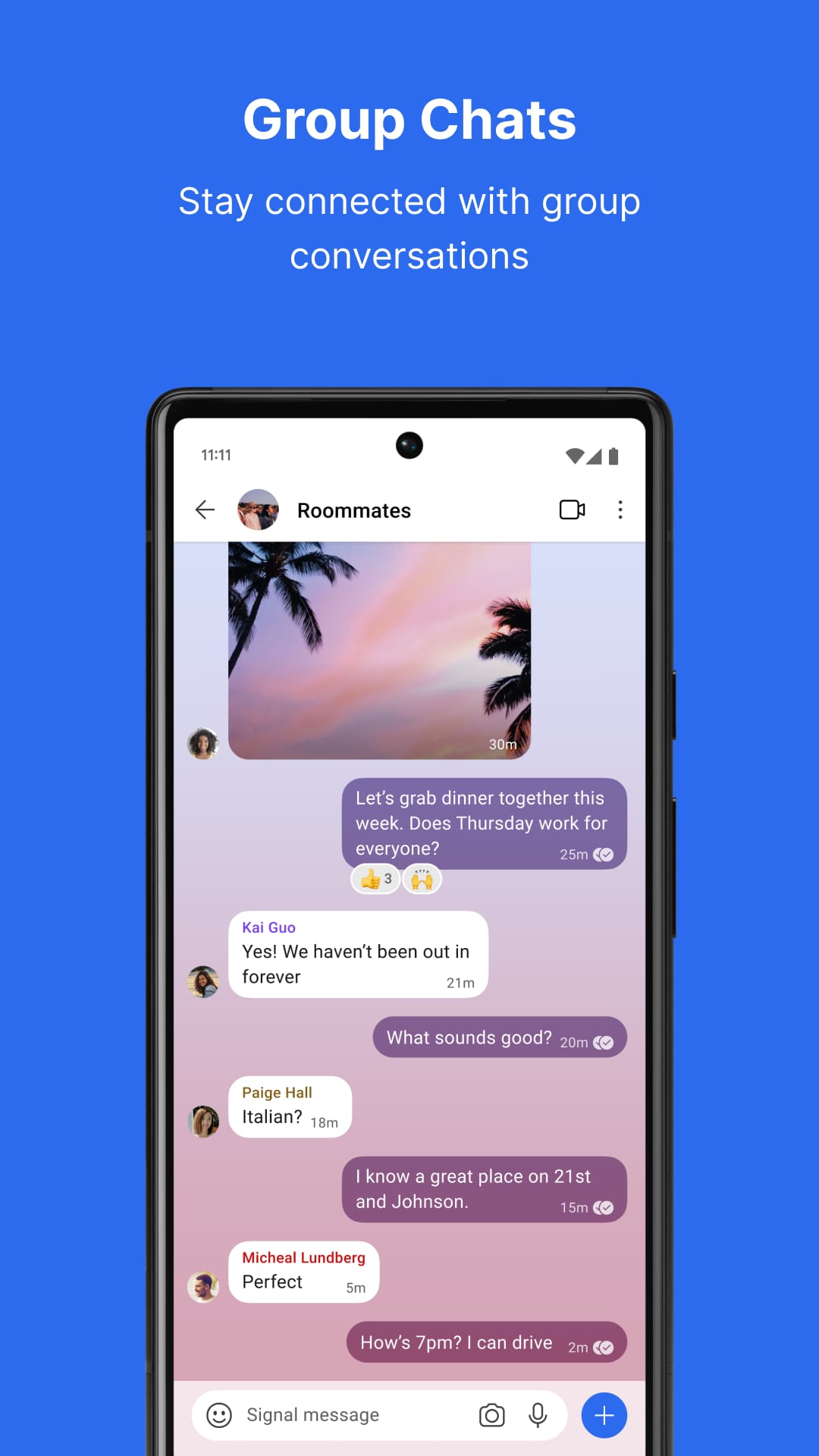 |
|
| Rating: 4.4 | Downloads: 100,000,000+ |
| Category: Communication | Offer by: Signal Foundation |
Signal Private Messenger is a renowned messaging app known for its emphasis on privacy and security. With a strong focus on end-to-end encryption and open-source development, Signal offers users a secure platform for private conversations. In this article, we will explore the key features and benefits of the Signal Private Messenger app, examine its pros and cons, delve into real user reviews, and highlight three similar apps in the market.
Features & Benefits
- End-to-End Encryption: Signal’s strongest feature is its robust end-to-end encryption, ensuring that only you and the intended recipient can access the messages and calls. This encryption protocol secures your conversations from potential eavesdroppers, providing peace of mind and privacy.
- Open-Source Development: Signal’s open-source nature allows transparency and community collaboration in its development. This means that the code is available for public inspection, ensuring that any potential security vulnerabilities are quickly identified and addressed. Open-source development fosters trust in the app’s security and privacy features.
- Secure Voice and Video Calls: Signal not only offers secure messaging but also allows users to make encrypted voice and video calls. This feature enables users to have private conversations, free from the risk of interception or unauthorized access.
- Screen Security: Signal provides an additional layer of security by offering a screen security feature. This feature prevents others from taking screenshots or screen recording during a Signal call, protecting the privacy of your conversations.
- Disappearing Messages: Signal allows users to set timers for messages to automatically disappear after a specified period. This feature is particularly useful for sensitive or confidential conversations, providing an added layer of privacy and ensuring that messages are not stored indefinitely.
Pros
- Strong Emphasis on Privacy: Signal’s commitment to privacy and security is evident through its end-to-end encryption, open-source development, and disappearing messages. It provides users with a secure platform for private conversations, protecting their data from unauthorized access.
- Encrypted Voice and Video Calls: Signal’s capability to make encrypted voice and video calls ensures that your conversations remain private, even when communicating in real-time. This feature is particularly valuable for individuals or groups who prioritize secure communication.
- User-Friendly Interface: Signal offers a simple and intuitive interface that is easy to navigate, making it accessible to users of all technical backgrounds. The app’s design focuses on functionality, ensuring a seamless user experience.
- Cross-Platform Compatibility: Signal is available on multiple platforms, including iOS, Android, and desktop. This compatibility allows users to communicate securely across different devices, ensuring seamless integration and accessibility.
- Group Chats and Media Sharing: Signal supports group chats and allows users to share photos, videos, and documents securely within these groups. This feature is beneficial for collaborative projects or social interactions, where secure communication and file sharing are essential.
Cons
- Limited User Base: While Signal has gained popularity, it may still have a smaller user base compared to more mainstream messaging apps. This can limit the number of contacts or groups available for communication.
- Dependency on Internet Connectivity: Signal requires an active internet connection to send and receive messages and calls. Users in areas with poor or no internet connectivity may experience limitations in their ability to use the app.
- Lack of Advanced Features: Signal’s focus on privacy and security means that it may have fewer advanced features compared to other messaging apps. Users who require a wide range of functionalities or integrations may find Signal to be lacking in certain areas.
Apps Like Signal Private Messenger
- WhatsApp: WhatsApp is a widely popular messaging app that offers end-to-end encryption, similar to Signal. It allows users to send messages, make calls, share media, and participate in group chats. While Signal focuses more on privacy and security, WhatsApp provides a broader range of features and a larger user base.
- Telegram: Telegram is another messaging app known for its security features and focus on privacy. It offers end-to-end encryption for secret chats and allows users to send messages, make calls, and share media. Telegram also supports large group chats and offers additional features like bots and channels.
- Wire: Wire is a secure messaging app that prioritizes privacy and encryption. It offers end-to-end encryption for messaging, voice calls, and video calls. Wire also supports group conversations, file sharing, and integrations with other tools. It differentiates itself by providing a balance between security and advanced features for both personal and professional use.
These apps, like Signal, provide secure messaging platforms with various features and levels of encryption. Users can choose the app that best suits their needs based on factors such as user base, additional features, and specific privacy requirements.
Screenshots
 |
 |
 |
 |
Conclusion
Signal Private Messenger is a highly secure messaging app that prioritizes user privacy through end-to-end encryption, open-source development, and disappearing messages. With features such as encrypted voice and video calls, cross-platform compatibility, and a user-friendly interface, Signal offers a reliable platform for private and secure communication. While it may have a smaller user base and lack some advanced features, Signal remains a top choice for individuals and groups seeking a secure messaging app.






